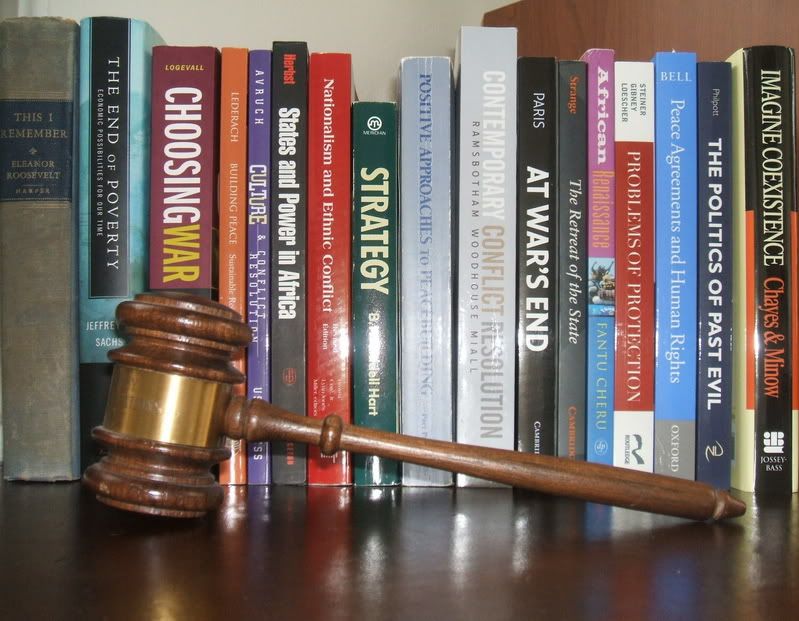Thoughts at the end of the Summer of Violence
This summary is not available. Please click here to view the post.
Rants and musings on peace and human rights issues, local, national, and international. Add one part seriousness, one part cynicism, and one part insanity. Stir vigorously. Learn more at my handy webhome.
This summary is not available. Please click here to view the post.
respectfully submitted by
jterry
at
20:33
![]() 0
bad reactions
0
bad reactions
Labels: DC Life, LGBTQ Stuff, Rights - Human and otherwise
respectfully submitted by
jterry
at
12:09
![]() 0
bad reactions
0
bad reactions
Labels: Activism, LGBTQ Stuff, Rants, Rights - Human and otherwise
respectfully submitted by
jterry
at
23:08
![]() 0
bad reactions
0
bad reactions
Labels: DC Life, LGBTQ Stuff, Rights - Human and otherwise
respectfully submitted by
jterry
at
13:07
![]() 0
bad reactions
0
bad reactions
Labels: Domestic Policy, Foreign Policy, It's the ... Stupid, Rants, Rights - Human and otherwise
Mayor Fenty: In 2008, your administration tried to exempt District custodial agencies from complying with the gender identity and expression provisions of the Human Rights Act. Your administration failed to report hate crimes against transgender people and failed to include the same population in your recent LGBT health report. Your Office of Human Rights persistently refuses to enforce laws allowing transgender people to safely access public accommodations. Overly aggressive enforcement of prostitution free zones has led to rampant and blatant profiling of transgender people as sex workers. And in 2009, a year in which a transgender woman was brutally murdered in broad daylight, your LGBT affairs director refused to attend the annual Transgender Day of Remembrance because he had hockey tickets. Is there a particular reason your administration is targeting an already extremely disenfranchised part of the population for additional abuse? For both Mayor Fenty and Chairman Gray, how do you intend to rectify these problems, including addressing persistent unemployment in the transgender community and the growth of hate violence against transgender people of color?
respectfully submitted by
jterry
at
15:27
![]() 0
bad reactions
0
bad reactions
Labels: Activism, DC Life, Election 2010, Isms, It's the ... Stupid, LGBTQ Stuff, Rights - Human and otherwise, Weapons of Electoral Destruction
respectfully submitted by
jterry
at
16:54
![]() 0
bad reactions
0
bad reactions
Labels: Activism, DC Life, Domestic Policy, Election 2010, Immigration Follies, LGBTQ Stuff, Non-violence, Rights - Human and otherwise, Sunday News
respectfully submitted by
jterry
at
11:31
![]() 0
bad reactions
0
bad reactions
respectfully submitted by
jterry
at
10:07
![]() 0
bad reactions
0
bad reactions
Labels: LGBTQ Stuff, Ramblings, Rights - Human and otherwise
respectfully submitted by
jterry
at
16:47
![]() 0
bad reactions
0
bad reactions
Labels: British Politics, Domestic Policy, Election 2010, Rights - Human and otherwise, Sunday News, Weapons of Electoral Destruction
respectfully submitted by
jterry
at
11:41
![]() 0
bad reactions
0
bad reactions
Labels: Africa News, Rights - Human and otherwise, South Africa
respectfully submitted by
jterry
at
13:56
![]() 0
bad reactions
0
bad reactions
Labels: Africa News, Foreign Policy, LGBTQ Stuff, Rights - Human and otherwise
respectfully submitted by
jterry
at
16:42
![]() 0
bad reactions
0
bad reactions
Labels: France, Immigration Follies, Mindless Incompetence, Rights - Human and otherwise
respectfully submitted by
jterry
at
04:27
![]() 0
bad reactions
0
bad reactions
respectfully submitted by
jterry
at
23:37
![]() 2
bad reactions
2
bad reactions
Labels: Nerdiness, Rights - Human and otherwise, Terrrr comma War On, United Nations
respectfully submitted by
jterry
at
00:08
![]() 0
bad reactions
0
bad reactions
Labels: DC Life, LGBTQ Stuff, Rights - Human and otherwise
respectfully submitted by
jterry
at
23:09
![]() 0
bad reactions
0
bad reactions
Labels: Africa News, Reconciliation, Rights - Human and otherwise, Uganda, Zimbabwe
respectfully submitted by
jterry
at
13:25
![]() 0
bad reactions
0
bad reactions
Labels: Rights - Human and otherwise, Security Policy, War and its Discontents
... And all this happens.
On the first thing, good. About time. Curious to see if he makes it to The Hague though.
On the second thing, I'm not holding my breath.
And on the third thing, I'm wondering what happens next, as this is a thing I don't know much about but has piqued my interest.
respectfully submitted by
jterry
at
20:11
![]() 0
bad reactions
0
bad reactions
Labels: Peace Agreements, Rights - Human and otherwise, Weapons of Electoral Destruction
“I don’t know of any acts of torture that have been committed,” [Ashcroft] said, adding that all the techniques fell within legally approved guidelines, including waterboarding, in which water is poured into the mouth and nose to produce a feeling of drowning.My beef isn't with Ashcroft's denial of authorizing or know about acts of torture taking place -- that's to be expected from current and former members of the Sleaze Administration. What bothers me is the part that goes "to produce a feeling of drowning."
respectfully submitted by
jterry
at
21:34
![]() 0
bad reactions
0
bad reactions
respectfully submitted by
jterry
at
14:51
![]() 0
bad reactions
0
bad reactions
Labels: ICC, Rights - Human and otherwise, Sudan
